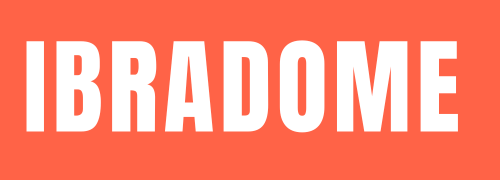The online casino industry has exploded in popularity over the past decade, with global revenues reaching $92.9 billion in 2023 and projections suggesting they’ll exceed $130 billion by 2027. This rapid growth has intensified debates about fairness and transparency in virtual gambling establishments. Many players wonder: can online casinos truly offer honest payouts and fair play, or is this merely clever marketing? This question isn’t just academic—it affects millions of players who deposit real money into these digital platforms daily.
In the United States alone, approximately 2.5 million adults engage in online gambling regularly, with an average spending of $110 per month. Meanwhile, in the UK, 21.6% of adults participated in online gambling activities in 2023, according to the UK Gambling Commission. These numbers highlight the importance of examining whether players are getting a fair deal.
How Online Casino Fairness Is Supposed to Work
At the heart of any reputable online casino like SpinDog Casino UK is a Random Number Generator (RNG)—specialized software designed to produce unpredictable and unbiased outcomes. These complex algorithms generate thousands of random numbers per second, determining game results without human intervention. Theoretically, this technology ensures that every spin, deal, or roll has the same probability of winning as any other.
For example, in a standard online slot game, the RNG might cycle through numbers between 1 and several billion, with each number corresponding to a specific outcome on the reels. This happens at a rate of approximately 1,000 calculations per second, even when nobody is playing the game.
Return to Player (RTP) Percentages
Another key factor in casino fairness is the Return to Player (RTP) percentage. This statistic indicates the theoretical amount a game will pay back to players over time.
For example:
- Online slots typically offer RTPs between 94% and 98%
- Video poker games often feature RTPs of 97% to 99.5%
- Blackjack can reach 99.5% with optimal play
- European roulette stands at 97.3%
These figures represent the mathematical expectation over millions of plays—they don’t guarantee individual session outcomes. Nevertheless, they provide a framework for assessing a game’s theoretical fairness.
Reality Check: Challenges to Fair Play
Not all online casinos operate under the same regulatory standards. While jurisdictions like the United Kingdom, Malta, and Gibraltar maintain strict oversight, others offer more lenient “rubber stamp” licenses with minimal monitoring.
| Regulatory Authority | Jurisdiction | Testing Requirements | Audit Frequency | Penalty Enforcement |
| UK Gambling Commission | United Kingdom | Comprehensive | Monthly | Strict, with heavy fines |
| Malta Gaming Authority | Malta | Detailed | Quarterly | Moderate to strict |
| Curaçao eGaming | Curaçao | Basic | Yearly | Limited |
| Kahnawake Gaming Commission | Canada | Moderate | Bi-annual | Moderate |
| Alderney Gambling Control | Channel Islands | Comprehensive | Quarterly | Strict |
This regulatory patchwork creates inconsistent standards across the industry, allowing some operators to engage in questionable practices while technically remaining “licensed.”
House Edge and Mathematical Advantage
Online casinos, like their brick-and-mortar counterparts, incorporate a built-in mathematical advantage known as the “house edge.” This isn’t necessarily unfair—it’s how gambling businesses remain profitable. However, problems arise when casinos manipulate this edge beyond advertised rates.
In 2023, independent testing laboratory eCOGRA found that approximately 8% of the online casinos they examined had games with actual RTPs that deviated from advertised rates by more than 2 percentage points. While this may seem small, such discrepancies significantly impact players’ chances of winning over time.
Signs of Honest Casino Operations
Legitimate online casinos submit their RNG systems and game mechanics to independent testing laboratories like eCOGRA, iTech Labs, or Gaming Laboratories International (GLI). These organizations conduct rigorous evaluations to verify fairness.
For example, testing procedures typically include:
- Analyzing millions of game rounds to confirm RNG randomness
- Verifying that actual RTP matches advertised rates
- Testing for potential biases or patterns
- Examining implementation of game rules
Casinos that prominently display certification seals from these organizations generally demonstrate a commitment to fair play.
Transparent Terms and Conditions
Fair casinos maintain clear, straightforward terms regarding bonuses, withdrawals, and gameplay. Red flags include:
- Excessive wagering requirements (above 40x the bonus amount)
- Vague “irregular play” clauses that can invalidate winnings
- Unreasonable withdrawal limits or processing times
- Hidden game restrictions during bonus play
Moreover, honest operators update their terms with appropriate notice rather than changing rules retroactively to avoid payouts.
Technology Solutions for Fairness Verification
Emerging technologies are addressing fairness concerns through innovative approaches. Blockchain-based casinos, which first appeared around 2014, offer “provably fair” gaming systems that allow players to independently verify game results.
These systems work by:
- Creating an encrypted seed before each game round
- Allowing players to add their own randomness to the equation
- Publishing verification methods that confirm results weren’t manipulated
- Recording all transactions permanently on a public blockchain
This technology eliminates the need to “trust” the casino, as mathematical proof of fairness becomes accessible to everyone. Currently, approximately 15% of online casinos incorporate some form of blockchain verification, with adoption increasing by roughly 3% annually.
Future of Fair Online Gambling
The evolution toward fairer online gambling continues, with regulatory bodies tightening requirements and technological solutions improving transparency. Furthermore, player awareness has grown significantly, with gambling forums and review sites routinely exposing dishonest operators.
In 2024, several jurisdictions introduced stricter regulations, including mandatory implementation of reality checks, deposit limits, and more rigorous RNG testing. Additionally, artificial intelligence monitoring systems now help identify unusual patterns that could indicate manipulation.
Separating Fact from Fiction
Honest online casino payouts and fair play are neither entirely myth nor universal reality—the truth lies somewhere in between. While the industry contains both exemplary operators and questionable actors, informed players can identify trustworthy platforms through careful research.
By checking for proper licensing, independent certification, transparent policies, and utilizing verification technologies when available, players can significantly increase their chances of experiencing genuine fair play. The gambling landscape continues to evolve, with regulatory pressure and technological innovation gradually tilting the scales toward greater honesty and transparency.
The ultimate reality is that fair online casinos do exist—but finding them requires due diligence rather than blind trust in marketing claims or flashy promotions.

